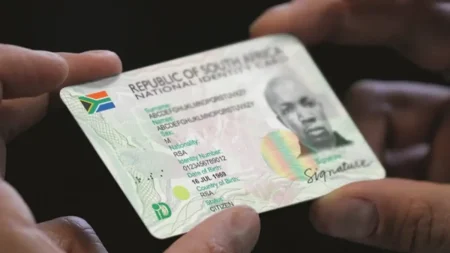Taxis are the lifeblood of South Africa’s public transport system, offering affordable and accessible commuting for millions of people daily. However, as convenient as they are, there are times when passengers encounter unpleasant or even dangerous situations while using taxis. If you’ve ever felt unsafe, experienced reckless driving, or had disputes over fare with a taxi driver, you should know that you have the right to report issues with taxi drivers.
This article is designed to help you understand the process of reporting unprofessional or unsafe behavior from taxi drivers. We’ll discuss the most common issues passengers face, how to gather the right information, and where you can report these incidents.
By knowing your rights and where to seek help, you can protect yourself and others while improving the overall taxi service in South Africa.
Common Problems Passengers Face With Taxi Drivers
Taxi drivers, like all other service providers, have a responsibility to treat passengers with respect and transport them safely. However, there are instances where this standard falls short. Here are some of the most common issues passengers report when dealing with taxi drivers:
- Reckless Driving: Speeding, ignoring traffic signals, and dangerous overtaking are some of the frequent complaints. Such behavior not only endangers passengers but also other road users.
- Overcrowded Taxis: Some drivers pick up more passengers than their taxi is legally allowed to carry, leading to uncomfortable and unsafe conditions.
- Fare Disputes: Disagreements over the correct fare are common. Some drivers may overcharge, refuse to give change, or charge different rates than agreed upon for certain routes.
- Unsafe or Dirty Vehicles: Passengers often report taxis that are poorly maintained, with broken seats, faulty seatbelts, or other safety hazards. Dirty vehicles can also cause discomfort during travel.
- Rude or Aggressive Behavior: Verbal abuse, intimidation, or aggressive responses from taxi drivers are serious issues that passengers may face. This could be anything from dismissive attitudes to outright threats.
- Discrimination: In some cases, passengers report taxi drivers refusing service or treating them poorly based on race, gender, or other discriminatory factors.
- Refusal to Drop Passengers at Requested Destinations: It’s not uncommon for drivers to refuse to take passengers to specific areas, especially in less popular or less affluent neighborhoods.
While these situations can be frustrating or even frightening, the good news is that passengers can report issues with taxi drivers. Knowing how to take action is the first step in holding drivers accountable and ensuring your safety.
News: At Least 16 Injured in Minibus Taxi Overturn on N1 Highway Near Buccleuch Interchange
Why It’s Important to Report Issues With Taxi Drivers
Reporting issues with taxi drivers is about more than just addressing your personal grievances. It plays a vital role in improving the overall standard of public transport and ensuring safety for everyone. Here’s why reporting is so important:
- Passenger Safety: Reckless driving and overcrowding can lead to accidents and injuries. By reporting such behavior, you help ensure that drivers who pose a risk are disciplined or removed from the road.
- Improving Taxi Service: Reporting poor behavior helps raise the standard of the taxi industry. Drivers who repeatedly receive complaints can face disciplinary measures, which encourages better service.
- Enforcing Regulations: The taxi industry is subject to regulations, but without reports from passengers, these rules can be difficult to enforce. Your report helps ensure that laws and regulations are followed.
- Empowering Passengers: Reporting an issue sends a clear message that unprofessional or unsafe behavior is unacceptable. It empowers passengers to demand better service and fair treatment.
By taking action and reporting issues with taxi drivers, you’re not just protecting yourself—you’re contributing to a safer and more reliable transport system for everyone.
How to Report Issues With Taxi Drivers
If you’ve encountered a problem while using a taxi, there are several ways to report the issue and get help. Whether it’s reckless driving, fare disputes, or driver misconduct, knowing how to report can make all the difference.
1. Collect Essential Information
Before you can report an issue, it’s important to gather the right details. The more information you can provide, the easier it will be for the authorities to act on your complaint. Here’s what you should collect:
- Taxi registration number: This number, displayed on the side or back of the taxi, is key to identifying the vehicle and its driver.
- Route number or taxi association: Knowing the route or association the taxi belongs to helps direct your complaint to the correct organization.
- Date, time, and location: Make a note of when and where the incident occurred.
- Description of the issue: Write a clear account of what happened. Include as much detail as possible.
- Photos or videos: If it’s safe to do so, take pictures or videos that provide evidence of the issue, such as the condition of the taxi or the driver’s reckless driving.
- Witnesses: If other passengers experienced the same issue, ask if they are willing to support your complaint.
2. Report to the Taxi Association
Most taxis in South Africa belong to a taxi association, which oversees the conduct of its drivers. If you want to report issues with taxi drivers, contacting the taxi association is usually the first step.
- Contact the association: The contact information for the taxi association is often displayed on the taxi or can be found through a quick online search.
- Provide details: When reporting, provide all the relevant details, such as the registration number, route, and description of the issue.
- Request a reference number: Always ask for a reference number when filing your complaint. This will allow you to follow up on the issue later.
3. Report to Transport Authorities
If the issue is severe, or the taxi association does not take appropriate action, you can escalate the matter to the relevant transport authorities.
- Department of Transport: You can report issues to the provincial or national Department of Transport, especially if the complaint involves serious offenses like reckless driving or unroadworthy vehicles.
- National Public Transport Regulator (NPTR): This body oversees public transport services, ensuring that taxis meet safety and service standards. They are the right authority to contact if your complaint involves vehicle safety or driver conduct.
- National Traffic Call Centre: For reckless driving or road safety concerns, you can report the issue to the National Traffic Call Centre at 0861 400 800.
4. Report Issues Online
There are also several online platforms where passengers can report issues with taxi drivers. These platforms forward complaints to the appropriate authorities or taxi associations for further investigation.
- Arrive Alive: This road safety website allows you to submit reports on reckless driving, unsafe vehicles, and other road-related issues.
- Municipal Websites: Some municipalities provide online portals where residents can report public transport complaints, including issues with taxi drivers.
5. Use Social Media or Consumer Platforms
If your complaint is being ignored, consider raising awareness through social media or consumer protection platforms. Publicizing the issue can often prompt faster responses from authorities or the taxi association. Be sure to stay professional and factual when sharing your experience.
Where to Get Help: Resources for Passengers
If you’re struggling to get help through formal complaint channels, there are several organizations and services that can assist:
- South African National Taxi Council (SANTACO): As the national body overseeing the taxi industry, SANTACO can help mediate disputes between passengers and drivers, especially if the local taxi association isn’t responding.
- Consumer Protection Bodies: The National Consumer Commission (NCC) can assist if your issue involves unfair treatment, overcharging, or other consumer rights violations.
- Legal Aid South Africa: If your complaint involves serious misconduct or an accident, Legal Aid South Africa offers affordable or free legal services to help resolve the issue.
What Happens After You Report?
Once you report issues with taxi drivers, here’s what you can typically expect:
- Acknowledgement: You’ll likely receive a reference number or confirmation that your complaint has been received.
- Investigation: The taxi association or relevant authority will investigate the matter, which may involve reviewing evidence, speaking to the driver, and examining the vehicle.
- Action Taken: Depending on the severity of the issue, the driver may receive a warning, fine, or suspension. In more serious cases, the driver could lose their license.
Alternative Transport: Metrobus Pricing and Zones: Essential Information for Commuters
Reporting issues with taxi drivers is an important step in improving the safety and quality of public transport in South Africa. By taking action and making your voice heard, you contribute to the accountability of taxi drivers and help ensure a better experience for all passengers.
Remember, you don’t have to tolerate unprofessional or unsafe behavior. By knowing how to report issues and where to get help, you can protect yourself and others while helping to create a safer and more reliable taxi industry in South Africa.










